January 20th, 2010
The Golden Rock Top 25 Panasian Films of the Decade - Part 2
Today, I continue my favorite 25 Panasian films of the decade.
But again, the disclaimer: I watch a lot of films, but like anyone who doesn’t get to travel to film festivals worldwide or have that much time to watch every Asian film existed, I missed out on a lot of stuff. I also have my own biases. I don’t care for Achitpatong, Kim Ki-Duk, or Hong Sang-Soo, which means those art films one might’ve seen on those best of the decade list by western organizations will be missing here. Mainly, they’re not because I really don’t like them - I just couldn’t find the time to watch them.
Hence, this list is totally interactive. This means you’re welcome to offer your own list or even talk about my picks. But I can say it’s unlikely to find a definitive top 10 list out there, since 1) Everyone has different tastes, and 2) there were so many films that I had to expand my list to 25.
So, now, on with Numbers 19-11:
19. Battle Royale (2000) - Japan - Directed by Kinji Fukusaku - LoveHKFilm Review

This extreme re-imagined version of Lord of the Flies is not only on the list for the controversy it raised at the time, but also for its inflammatory look at a new generation of Japanese youth by one of Japan’s oldest rebel directors. It’s violent, it’s disturbing, and it dares its audience into enjoying its violence. However, let’s forget its sequel ever existed.
18. Yasukuni (2007) - Japan/China - Directed by Li Ying

Chinese director Li Ying and Japanese theaters received death threats for making and showing this direct cinema look at the controversial shrine on its most controversial day of the year. For a Chinese-made film about such a Japanese subject (Even most of Li’s crew is Chinese), this is about as “balanced” a look on the subject as it can possibly get. Li simply stands back and captures the chaos over the role of the shrine, and the result is quite eye-opening. Anyone who calls this propaganda for any side has no idea what they’re talking about.
To this day, there is not English-subtitled video release out there.
17. One Fine Spring Day (2001) - Korea - Directed by Hur Jin-Ho
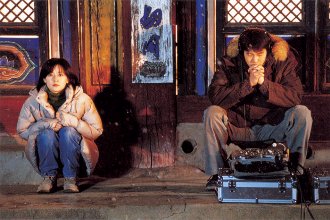
Hur Jin-Ho’s chronicle of a doomed relationship remains one of the most accurate depictions of romance I’ve seen on screen. His minimalist style and the lack of a female perspective here may make it inaccessible to some, but for those that can relate, it serves as a painful reflection of the ones that got away.
16. Mother (2009) - Korea - Directed by Bong Joon-Ho - LoveHKFilm review
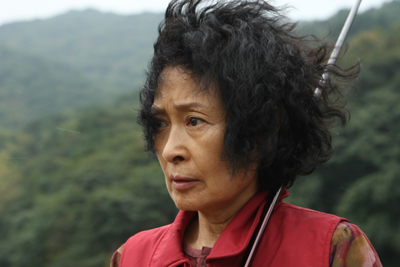
Bong Joon-Ho’s mystery-thriller is an example of fine technical filmmaking, with every cut measured precisely and every camera movement calculated to get its intended effect just right. Its morally ambiguous ending may disturb some, but it’s the twist on “family values” and Kim Hye-Ja’s performance that make it so brilliant.
15. Still Walking (2008) - Japan - Directed by Hirokazu Kore-eda - LoveHKFilm review
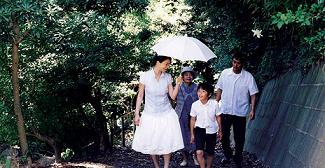
Kore-eda takes on Yasujiro Ozu in this dramedy about the modern family and the things slowly breaking it apart. It appears light on the surface, but Kore-eda’s script (based on his own novel) keeps its conflicts and secrets just underneath the surface, waiting to come out (In other words, just like any other family). Even then, it’s also surprisingly funny at points.
14. Tony Takitani (2004) - Japan - Directed by Jun Ichikawa - LoveHKFilm review
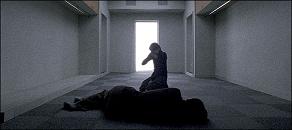
The only Haruki Murakami screen adaptation to date (until the end of the year, when Norweign Wood is released) is also very successful is taking the author’s melancholic writing style for the big screen. Director Jun Ichikawa designed the brilliant “page-turning” transitions between scenes to keep up with its literary source, and the music by Ryuichi Sakamoto is hauntingly moving. It’s short at 64 minutes, but for a Murakami fan, every one of those 64 minutes has been well worth the wait.
13. Joint Security Area (2000) - Korea - Directed by Park Chan-Wook - LoveHKFilm review
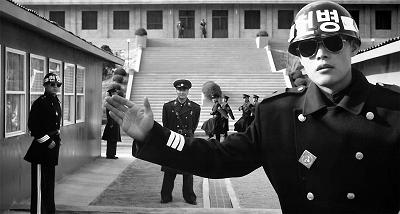
Many Korean blockbusters deal with the separation of the two Koreas, and this one rank as the best exploration of that relationship. While Kang Je-Gyu turned the sensitive topic into slam-bang blockbuster material (twice!), Park Chan-Wook used this Rashomon-style procedural mystery to explore whether reconciliation is truly possible, and the result is Park proving himself as the storyteller before he became Park the visual showman.
12. Oasis (2002) - Korea - Directed by Lee Chang-Dong
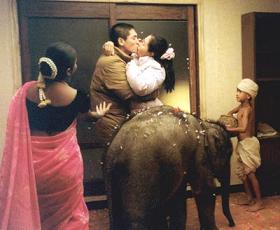
Lee Chang-Dong’s drama about an ex-convict and a woman with cerebral palsy defined the careers of its director (who later became a minister of culture for several years) and lead actress Moon So-Ri. Its choice to depict such a graphic, but gentle romance between two disabled (in their own way) people shows the guts of the emerging Korean cinema and the artistic heights it could reach.
11. Blue Gate Crossing (2002) - Taiwan - Directed by Yee Chin-Yen - LoveHKFilm review
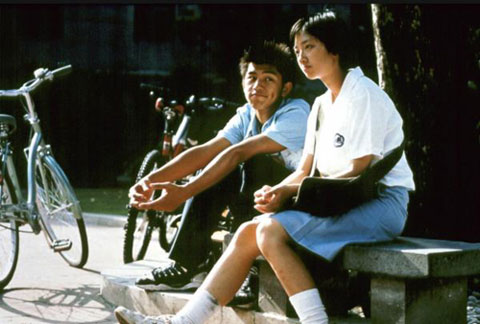
Eternal Summer and Miao Miao owe a great deal to this simple, but beautifully-made youth film. The peace of Taiwanese suburban life captured by writer-director Yee Chih-Yen is memorably serene, and two-thirds of its young cast has deservedly moved on to far bigger things as well. It’s not a particular hard-hitting film compared to other films on the list, but its influence on future works of the genre makes it a more important film that it suggests.
And next time: The finale - The Top 10 Panasian films of the decade, and the special awards. Let the general indifference begin!


January 22nd, 2010 at 5:57 pm
Dear Kevin,
Thanks so much for this very interesting list. Looking forward to reading about your Top 10.